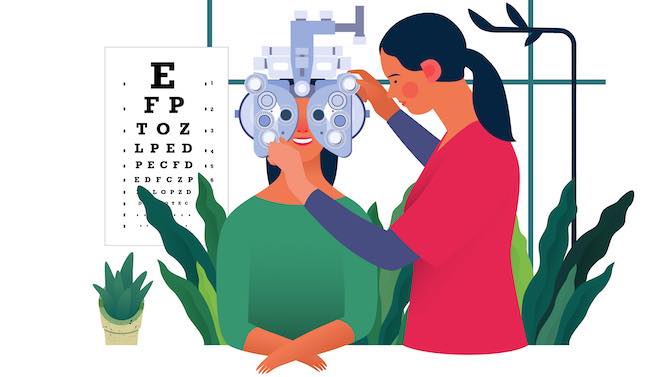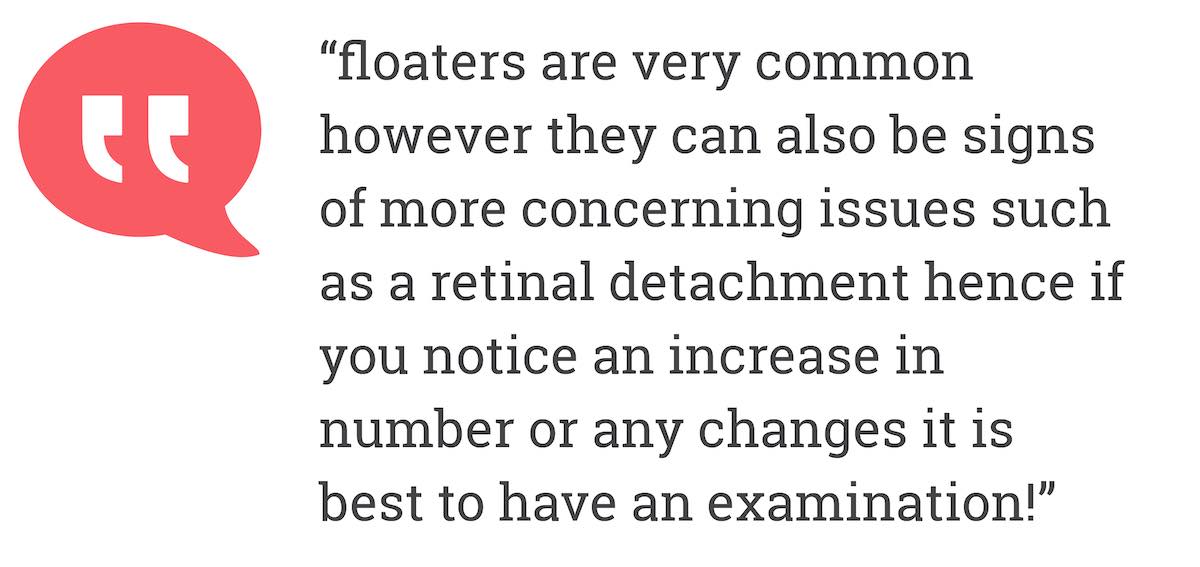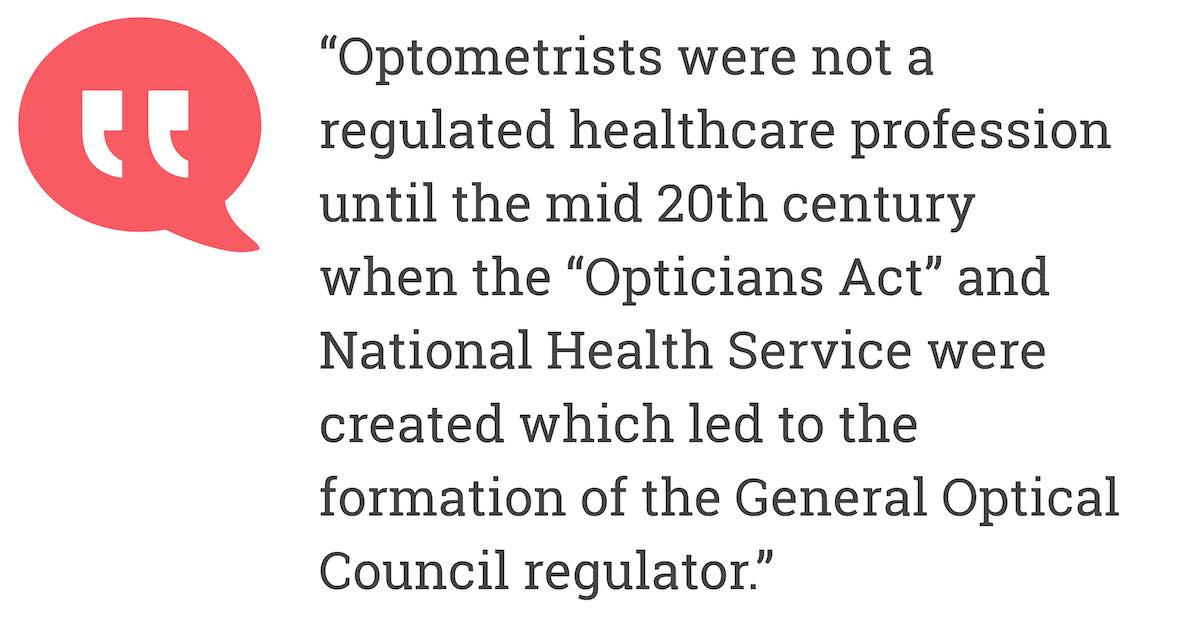 “Apart from helping you to see more clearly, often your eye examination will pick up signs of general health problems such as high blood pressure, cholesterol, glaucoma and diabetes.“
“Apart from helping you to see more clearly, often your eye examination will pick up signs of general health problems such as high blood pressure, cholesterol, glaucoma and diabetes.“Indy Ghuman discusses Optometry and tells us everything you didn’t think you needed to know about the world of eyes.
Topics covered in this article
Why Is Optometry In Primary Care Important?
What Kind Of Symptoms Does An Optometrist Treat?
What Are The Main Duties Of An Optometrist?
Which Other Healthcare Staff Are Involved In The Care Of Someone Being Treated By An Optometrist?
What Settings And Places Of Practice Do Optometrists Work In?
Does The NHS Employ Optometrists?
What Are The Career Opportunities In Optometry?
A Brief History Of The Role Of The Optometrist
Brief Outline Of A Day In The Life Of A Optometrist

Search Jobs
1000s of jobs for Nurses & Care Professionals. No.1 for UK nursing, care & healthcare jobs.
Search JobsWhat Is An Optometrist?
Optometrists are Healthcare Professionals who specialise in examining eyes to detect problems with ocular health and disease, vision, and general health – this can be things such as diabetes and hypertension.
Optometrists, also known as Ophthalmic Opticians, work in both primary care (community) and secondary care (hospitals) settings.
What Does An Optometrist Do?
After a thorough assessment, your Optometrist will provide you with personal advice, provide you with a prescription, prescribe spectacles, contact lenses or low vision aids and refer you onwards for further examination if necessary. Hospital optometrists work a bit differently, usually in specific clinics managing more complex cases and specialised areas of optometry.

What Do You Think?
Ask questions, comment and like this article below! Share your thoughts, add your opinion in the comments below.
CommentWhy Is Optometry In Primary Care Important?
Apart from helping you to see more clearly, often your eye examination will pick up signs of general health problems such as high blood pressure, cholesterol, glaucoma and diabetes.
We also know many conditions that affect the eye do not have noticeable symptoms on initial presentation, for that reason regular check-ups are imperative to ensure your eyes are healthy – even if you feel your vision has not changed!
By picking up these issues early on there is reduced likelihood of further problems and we can ensure your health and vision are as best they can be.
What Kind Of Symptoms Does An Optometrist Treat?
Headaches – this could be due to refractive errors such as short and long sightedness due to your eyes straining to see properly or something more sinister like glaucoma due to a build-up of fluid pressure.
Blurry vision – from refractive error above and due to presbyopia, an age related change where the ability to focus at near distances is impaired, patients often say their arms are not “long-enough."
Dry, itchy and red eyes – from a variety of eye diseases, common reasons can be conjunctivitis, glaucoma or dry eye syndrome.
We are seeing this more and more from post-pandemic living due to overuse of digital devices.

Flashes and floaters – floaters are very common however they can also be signs of more concerning issues such as a retinal detachment hence if you notice an increase in number or any changes it is best to have an examination

Become A Community Contributor
Share your story to help and inspire others. Write or create a video about your job or your opinions!
ContributeWhat Are The Main Duties Of An Optometrist?
It does depend on the setting you work in but as a whole:
You interact with patients and find about their history & symptoms and consult them post examination.
Examine eyes comprehensively to check the health, vision, signs of injury, abnormality or disease.
Detect and diagnose general health and specific eye issues.
Manage and monitor eye problems that you have found independently or as part of a multi-disciplinary team.
Verify, fit and dispense contact lenses and spectacles amongst other optical aids to improve the vision quality of the patients you see.
Which Other Healthcare Staff Are Involved In The Care Of Someone Being Treated By A Optometrist?
In primary care, Optometrists will usually hand-over a patient to dispensing opticians who are specialists in fitting and supplying spectacles, frames and lenses.
Dispensing Opticians are regulated healthcare professions but also work with unregulated healthcare staff such as Optical Consultants.
Dispensing Opticians can also further study to become Contact Lens Opticians where they are particularly skilled at fitting and managing different types of contact lenses to best suit the patient – they work together with Optometrists. In an Opticians (the place) you will come across.
Audiologists and hearing aid dispensers who look after the health of your ears and handle hearing concerns.
In secondary care (hospitals) Optometrists work in large multi-disciplinary teams of Ophthalmologists, Orthoptists, Ophthalmic Medical Practitioners, Ophthalmic nurses in a shared care manner.
What Settings And Places Of Practice Do Optometrists Work In?
Optometrists who work in the community predominately are in one of the following:
Domiciliary – visiting patient’s in their own homes or visiting care homes. Community multiples – large national chains who have practices across the country.
Community independents – smaller practices who sometimes offer specialist services.
There are other sectors Ophthalmic Opticians work in:
• Hospital
• Academic university and/or research
• Industry and manufacturing
• Locum and merged roles combining a few of the above.
Does The NHS Employ Optometrists?
Yes, you can complete you “pre-registration” training placement in a hospital if you wish on your journey to qualifying as a clinician.
However there is a clear pathway to follow from a core services Optometrists, Specialist Optometrist, Principal Optometrist and Consultant Optometrist.
What Are The Career Opportunities In Optometry?
You can work your way up clinical or management pathways in community practice and work with a variety of demographics in rural/urban areas.
By moving into managing a practice you will have business as well as clinical responsibilities such as recruitment and contact lens examinations.
There is an opportunity for you to buy into your own your own practice whether that be an independent practice or a franchise/joint-venture with one of the larger chains.
As we mentioned above you can also progress through the NHS Bands as you take on a variety of roles within the hospital eye service.
Some Optometrists like to balance this with further training and education or teaching/supervising other members of staff or students – there’s lots of scope for you to craft your own working patterns.
A Brief History Of The Role Of The Optometrist

Optometrists were not a regulated healthcare profession until the mid 20th century when the “Opticians Act” and National Health Service were created which led to the formation of the General Optical Council regulator.
This protected the title and mandated strict levels of education and continued training and assessed new programmes to maintain the integrity of the profession.
Brief Outline Of A Day In The Life Of A Optometrist
An Optometrist will have a clinic of patients they will see where they will handle contact lens fitting and aftercare appointments in-between eye examinations. During this they will conduct and analyse tests and request others to be done before using all this information to treat and manage the individual.
Some clinics also handle eye health concerns such as foreign bodies.
During appointments Opticians have a role in educating and counselling patients on contact lens care, visual hygiene, lighting arrangements, and safety factors to highlight preventative care (e.g. smoking cessation) and optimise vision and eye health for the population.






About this contributor
Student Optometrist
Indy is a proactive third year Student Optometrist at Aston University, with a special interest in dry eyes which has led to his involvement in some eye-opening research! He is also the British Contact Lens Association (BCLA) Ambassador. Alongside this, he's been working as an Optical Assistant in the Primary Care setting, helping to serve his local communities’ eye care needs.
More by this contributorWant to get involved in the discussion?
Log In Subscribe to comment